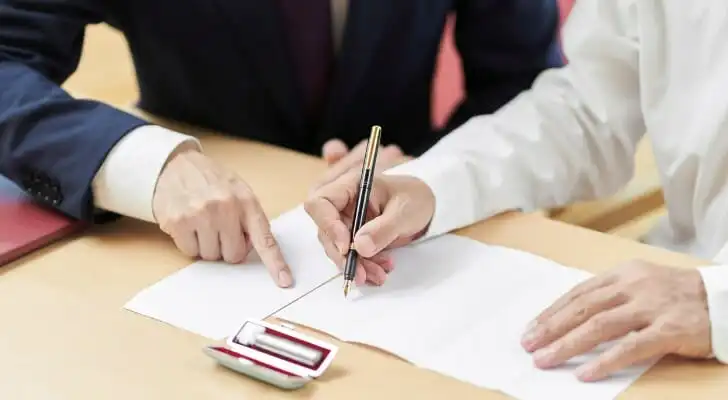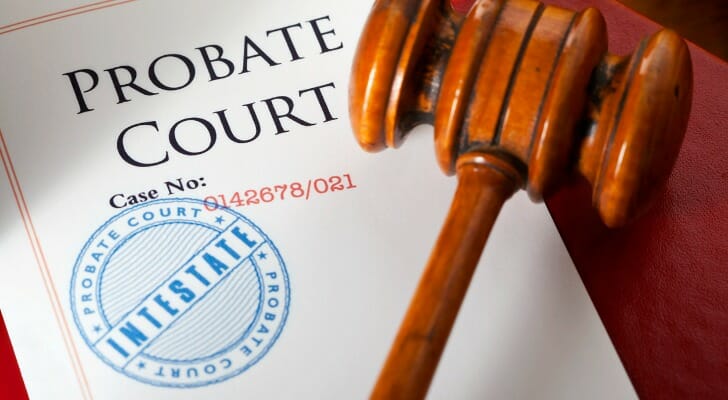Probate is the legal process of settling a person’s estate after they pass away. Even if a will is in place with detailed instructions, probate still occurs. During this process, several key steps take place, including creating an inventory of the estate, paying off outstanding debts and distributing the remaining assets to heirs. However, once probate is complete, the options available to beneficiaries and executors may change. If navigating the complexities of the process seems overwhelming, consider consulting with a financial advisor.
What Exactly Does Probate Mean?
Probate involves the settlement of an estate after death. When someone passes away, their estate becomes subject to the probate laws dictated by where they live.
An estate can be subject to probate regardless of whether there is a will in place or not. If someone dies without a will, they’re deemed intestate according to their state inheritance laws. And if the deceased person named an executor for their estate in their will, this person has the authority to initiate probate. If not, then a member of the person’s family can open probate.
The specifics of what happens in the probate process can vary from state to state. But the most important steps include:
- Validating the deceased person’s will if they had one in place
- Creating an estate inventory of the deceased person’s assets and liabilities
- Notifying creditors that the estate owner has passed away
- Selling assets as needed to pay any outstanding debts
- Locating heirs if the person passed away without a will
- Distributing remaining assets to the deceased person’s heirs, either those named in a will or heirs at law
- Closing the estate
What Does It Mean to Close Probate?
Closing an estate means that the executor has carried out all of their duties and that there’s nothing left to do to manage the estate other than distributing assets. There are some things the executor needs to do to close probate, starting with providing a final accounting to the deceased person’s beneficiaries or heirs. This accounting should show:
- Assets of the estate and their corresponding values
- Debts owed by the decedent that were paid out of estate assets
- Expenses paid on behalf of the estate, including taxes
Beneficiaries or heirs have the right to review the estate’s accounting and either approve or challenge it. Once they give their approval, the assets can be distributed. After all debts and taxes have been settled, the executor can submit a petition to the probate court to close the estate. The court will then review the petition and proceed with finalizing the probate process.
What Happens After Probate Is Closed?

After probate is closed, beneficiaries and creditors still have a window of time in which they can file complaints against the executor or the estate itself. The federal Uniform Probate Code allows up to one year for complaints to be filed, though individual states may allow for a longer time frame.
A creditor or beneficiary could choose to file a complaint if they believe the estate was mishandled by the executor. A beneficiary could claim that the executor violated their fiduciary duty, or a creditor may raise objections if they believe they didn’t receive adequate notice of their right to make a claim against the estate’s assets for unpaid debts.
If there are no complaints filed in connection with the estate, the executor’s authority will expire and the estate will be closed. It’s important to note that a will can still be contested even after probate is closed.
What If Additional Assets Are Found After Probate Closes?
Even with a detailed inventory and careful accounting, an estate executor may still overlook certain assets. If additional assets are discovered after probate has been closed, the executor must notify the court that initially oversaw the probate process. In some cases, the court may allow the executor to distribute these newly found assets without reopening the estate.
However, some states may require a new probate proceeding. If this happens, either the original executor may continue in their role, or a new one may be appointed. The executor would then need to follow the standard probate process to distribute the newly discovered assets.
Creditors who successfully filed claims during the initial probate process may have the right to pursue claims against these newly found assets. How the remaining assets are distributed will depend on whether the deceased had a will and whether that will includes instructions for handling overlooked assets.
Filing a Complaint After Probate Is Closed
If you’re the beneficiary or heir of someone who has passed away and you believe that the probate process was closed improperly, you may have grounds to file a complaint. You may have grounds for a complaint if you believe or suspect that the executor:
- Intentionally provided inaccurate information about estate assets
- Misused or mishandled estate assets, resulting in an unfair distribution
- Stole assets or money from the estate
- Otherwise failed to carry out their fiduciary duties
You’d need to file your complaint with the probate court. An estate planning attorney or financial advisor may be able to advise you what your legal rights are and how to file a separate complaint to contest the terms of the will, if necessary.
Bottom Line

Probate can be a lengthy and time-consuming process, both for the executor and the estate’s beneficiaries. Understanding what happens after probate is closed can make your job easier if someone names you as their executor. It can also help you to be better informed about your legal rights if you stand to inherit assets from someone else.
Estate Planning Tips
- Consider talking to your financial advisor about how to develop a comprehensive estate plan and what to do if you inherit assets from someone else. Finding a qualified financial advisor doesn’t have to be hard. SmartAsset’s free tool matches you with financial advisors who serve your area. You can interview your advisor matches at no cost to decide which one is right for you. If you’re ready to find an advisor who can help you achieve your financial goals, get started now.
- Establishing a trust might be appealing if you’d like to leave assets to your loved ones but save them the time and trouble of having to go through probate. Different types of trusts can also serve other purposes. For example, providing for the care of a disabled dependent or providing protection against creditor claims.
Photo credit: ©iStock.com/stocknshares, ©iStock.com/kazuma seki, ©iStock.com/Ilya Burdun
